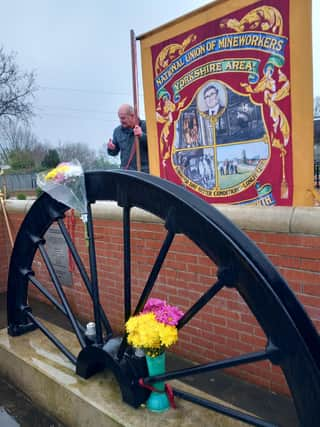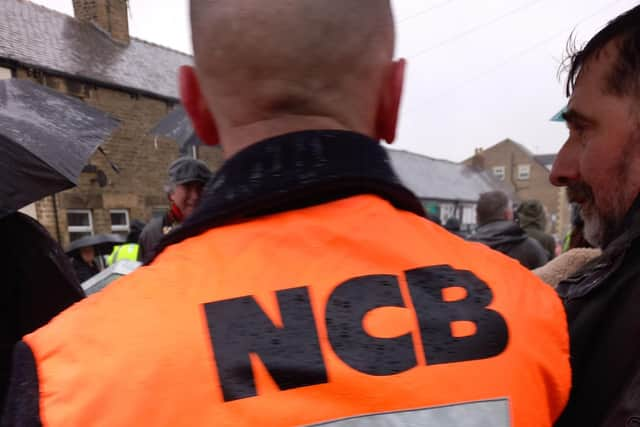Scargill insists strike could not have lasted without miners' wives


Speaking on the eve of the 40th anniversary of the dispute, which began with strike action in Yorkshire after the National Coal Board announced plans to close Cortonwood Colliery, he said the strike would have been cut short without their involvement.
Speaking at a rally to mark the anniversary, Mr Scargill said: “I want to pay special tribute to the Women Against Pit Closures, to the Barnsley women who took part in that magnificent development.
Advertisement
Hide AdAdvertisement
Hide Ad“I refer in particular to women from Barnsley who started a strike on their own, to support not just in soup kitchens, but on the picket line.”


He name-checked half a dozen individuals, including his then wife, Anne, Marsha Marshall, an activist who lived in Wombwell and Betty Cook, who worked alongside Mrs Scargill and remained a prominent figure in the community in the decades which followed. Pat Charlton, wife of football legend Jack, who were living in Barnsley at the time, also supported the cause.
Mr Scargill also made new claims about the strike, insisting that the Government was on the verge of capitulation when NUM members voted for a return to work in March 1985, due to dwindling coal stocks.
He also blamed NACODS, the pit deputies union, for hastening the vote to return to work by their own actions, in first turning to support the NUM, then quickly reversing that decision.
Advertisement
Hide AdAdvertisement
Hide Ad“Within a week of agreeing that, there were indications the leadership were selling out. I could not even get in touch with them,” he said.
“Sell out they did and in doing so, condemned the closure of the coal-mining industry.”
The return to work was decided on a vote of 98 votes in favour to 91 against, he said.
“We were so close to victory and yet, here we were going back to work,” he said.
Advertisement
Hide AdAdvertisement
Hide AdAt that point, coal stocks at power stations meant they “could not carry on.”
“I will never forget the international support we got. The strike made all of you international heroes and heroines.
“The miners’ strike of 1984 and 1985 remains an inspiration for workers and a reminder to today’s trade union members to challenge government and employers,” he said.